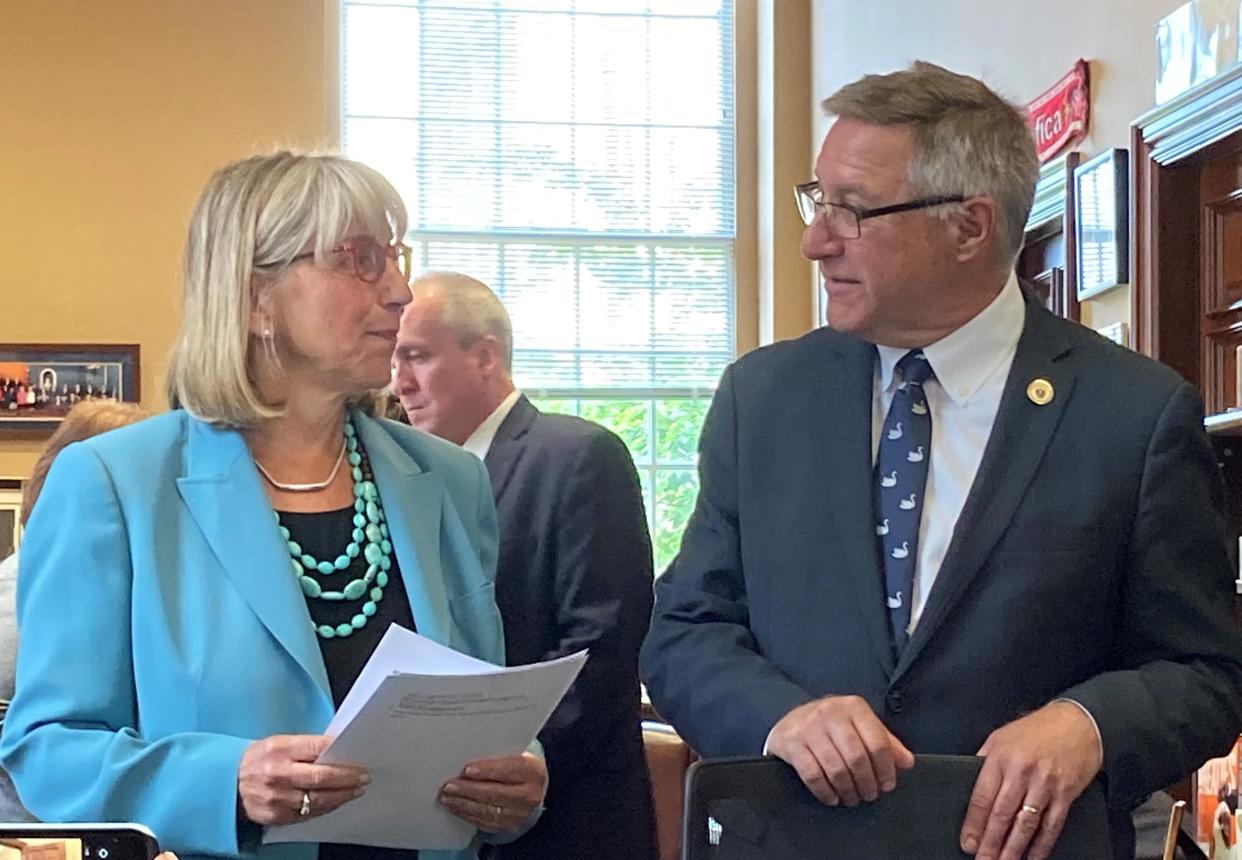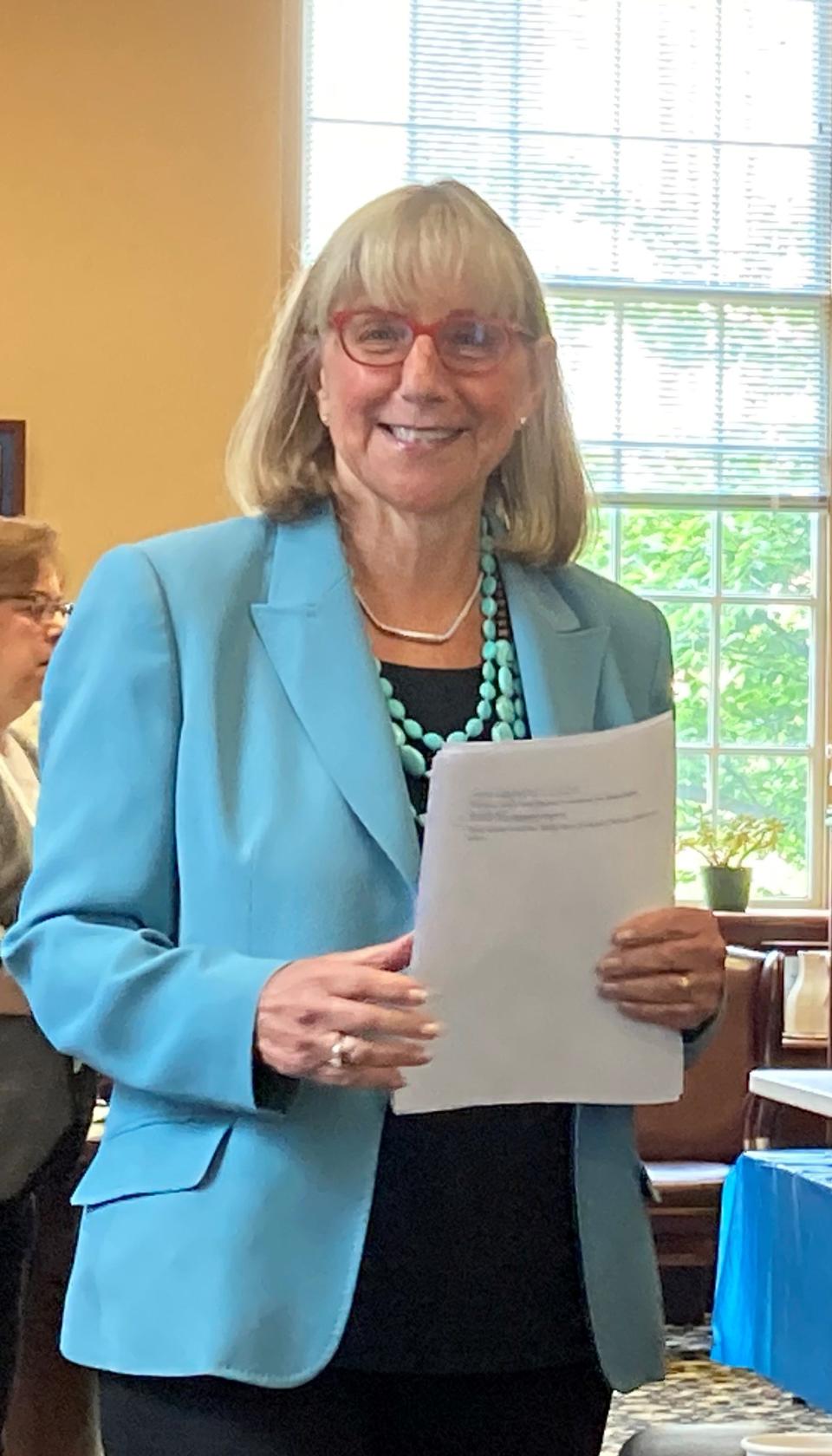Senate reveals $55 billion spending plan; proposes free community college for all

- Oops!Something went wrong.Please try again later.
BOSTON - The spending plan for fiscal 2024 proposed by Massachusetts senators reflects a strong investment in education, from early childhood through college, mental and behavioral health initiatives, as well as investments in public transportation, transportation infrastructure and workforce development.
The $55.8 billion, a proposed $3.4 billion increase, is mostly in line with plans presented by both Gov. Maura Healey ($55 billion, dropped in March) and the House ($56.2 billion, dropped in April), but the Senate budget differs in some key set asides. In its budget, the Senate allocates $55 million to support free community college for all residents by fall 2024, and a proposal for in-state tuition for all residents, regardless of immigration status.
The Senate also excluded universal school meals, funded at $161 million through the Fair Share Amendment, aka millionaire’s tax, by the House, from the spending plan. The body would opt to continue funding the measure through supplemental budgets.
And it nixed an online Massachusetts state lottery, deeming the proposal for iLottery required more study.
Tax relief? Not yet
“We’re excited about the budget,” said Senate President Karen Spilka, D-Ashland. “It’s more than numbers on paper, the budget reflects our values, priorities and what we want to accomplish.”
Sen. Michael Rodrigues, D-Westport, chairman of the Senate Ways & Means Committee, said that as the body worked through the economic uncertainty of the past two years, it always remembers that its responsibility is to care for the residents of the commonwealth.
“We take care of our people,” Rodrigues said.
Two issues were top of mind. One is tax relief, especially in light of the more than $1 billion dip in revenue collected in April as compared to taxes collected in 2022. The Senate has set aside some $575 million for possible tax reform and abatement ,which it will discuss once the budget amendments have been filed and vetted and the document debated and voted on.
The Senate was also careful to ensure funds generated by the FSA, anticipated to top more than $1 billion a year, were spent for education and transportation, as directed by state voters who approved the measure in November.
“We want to be open and transparent in how we spend the Fair Share revenue,” Rodrigues said. “We’re treating the Fair Share Amendment revenue as capital gains, as volatile and changeable.”
All three proposed budgets divide the expected funds equally between the two initiatives.

In discussing the budget particulars, Spilka pointed out the Senate’s intention to allocate $1.5 billion overall to early childhood education. That lump sum will fund the Commonwealth Cares for Children grant program, which supports child care operating costs at $475 million. This includes earmarks for salary increases for child care and early education workers, $25 million for capital investments in provider locations and $25 million to chip away at the waitlist for subsidized care at both private and public facilities.
At the other end of the education spectrum, the Senate proposes free community college to all residents by fall 2024, with $20 million being allocated directly to nursing programs for the fall 2023 semester.
“This investment is sure to pay dividends over time,” Spilka said.
While the Senate is proposing to open community college for all with a $55 million investment; it did allocate $20 million to the governor’s Mass Reconnect proposal, which would offer community college to all residents over 25 who have yet to earn a degree.
“We are working collaboratively with the state Department of Higher Education to develop universal free community college access for the fall of 2024,” Spilka said. However, a measure proposed by the governor, to lock tuition at the state’s four-year colleges through a students’ entire time at the institution, was not endorsed in the document.
Mass. falling behind other states on education
Spilka noted that despite Massachusetts’ reputation as a leader in education, it is falling behind other states in education and training. She said 23 states and the District of Columbia already offer access to in-state tuition for all residents, regardless of immigration status. Overall 31 states offer free community college.
Many of the education funding measures proposed by the Senate are geared to support workforce development as Spilka noted that one of the biggest issues facing the Bay State is the need to develop a qualified and trained workforce.

Behavioral and mental health initiatives are supported in the budget: $15 million to emergency room diversion to stabilize adults in crisis, $1 million for universal mental health screenings throughout the state’s public school system, $10 million to support youngsters transitioning back to school after suffering a mental health crisis and $1.2 million to support behavioral health initiatives in higher education.
“I am an ardent champion of mental health initiatives,” Spilka said, as she detailed the spending plans for behavioral health initiatives that would increase access to quality mental health care for state residents.
The Senate’s proposal sets aside $100 million for student loan repayment for those pursuing education in mental health in addition to $122 million to recruit and retain mental health workers, $25 million for scholarships and $25 million to pay students engaged in uncompensated clinical work, internships and practicums.
Behavioral health initiatives
And there’s $192 million in the Behavioral Health Trust Fund, fueled with federal American Rescue Plan Act money.
On questions of transportation funding, the Senate proposed investing $194 million in regional transportation authorities. That figure includes $100 million from the millionaire’s tax.
“We’re doubling the investment in RTAs in one year,” Spilka said. The funding would include pilot programs for fare-free transportation for RTAs and funds for the MBTA to conduct a pilot for means-tested fares. However, the Senate spending document does not earmark any funds for the development of the west/east rail project.
The Senate didn’t forget the MBTA with $190 million from the millionaire’s tax. The amendment money is also being allocated to transportation infrastructure: $100 million to roads and bridge repair work, $50 million to ensure communities do not miss out on federal funding if a local match is needed for projects to qualify for federal money and $50 million for highway bridges. There’s even $5 million for water transportation and ferries.
“It’s a regional equity issue,” Spilka said, explaining that the entire budget was prepared with regional equity in mind. “We’re closer to ensuring that all Massachusetts residents have access to reliable, affordable and safe transportation.”
This article originally appeared on Telegram & Gazette: Senate outlines spending plan; bulk to youth, workforce development

